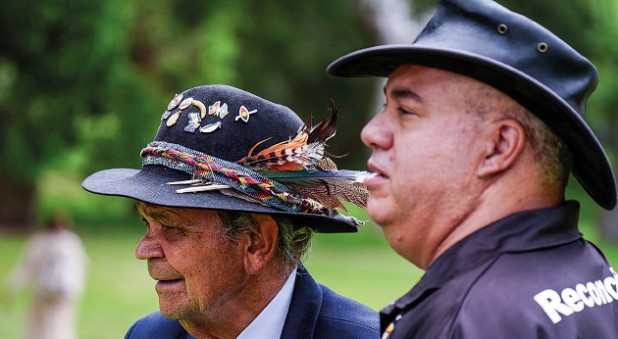Indigenous church leaders joined members of several Sydney churches in March for a reconciliation event at Kamay Botany Bay, the site of the first encounter between Lieutenant James Cook and the Gweagal people in 1770.
It is one of a number of nationwide events following the failure of the Voice to Parliament referendum last year, and aims to acknowledge the shared history of Indigenous and non-Indigenous Australians.
With the support of elders and the La Perouse Local Aboriginal Land Council, speakers shared specific wrongdoings since colonisation. But there were also messages of hope from veteran indigenous campaigners such as the Rev Ray Minniecon and elder Ossie Cruse MBE AM.
“The earth is the Lord's and the fullness thereof, so it belongs – everything belongs – to him, the Creator,” Pastor Cruse said. “I love this country and… and I love the people of this country. And we all belong, connected to each other… we should never forget that. And I don't want to see our nation come apart in discussing the pigment of our skin. The fact is that we're all one and under God, the Creator.”
The Rev Michael Duckett spoke of colonial massacres in the Campbelltown area where he now ministers, and his personal experience with the stolen generations.
God loves us, and God, his purpose is to draw all men unto himself through his son Jesus Christ.
“Sadly, many of our people have passed not knowing where their land was, not knowing their families, and that really hurts me and saddens me,” he told the crowd. “So this pathway we're on here, with recognition, if it leads to enabling people to find their roots, not just in this country but to their families, I think that's a bonus.”
Mr Duckett, who also chairs the Sydney Anglican Indigenous Peoples Ministry Committee, says the effects of the Appin massacre of 1816 are still being felt. “There's nobody there [in Campbelltown] from the traditional lands… there's very few, because it's been inundated by all these different tribes and different regions all over Australia, which means there's a lot of conflict, people from different lands,” he said. “So the side-effects of the dispossession, the massacres, just in Campbelltown – let alone here in Sydney – is continuation of desolation to my people, brokenness, hopelessness.
“And it sounds very depressing, I'm sorry. But I can say that in the midst of all that, like Uncle Os said, God loves us, and God, his purpose is to draw all men unto himself through his son Jesus Christ. So that's my hope, and I've seen it happen. I've seen it first-hand, the power of God coming into someone's life who is broken and lives in despair and then to find hope and a future.”
Main photo: courtesy Unity Light Films






















